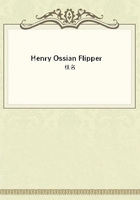
第51章
PLEASURES AND PRIVILEGES.
THE privileges allowed cadets during an encampment are different generally for the different classes.
These privileges are commonly designated by the rank of the class, such, for instance, as "first-class privileges," "third-class privileges," etc. Privileges which are common receive their designation from some characteristic in their nature or purpose. Thus we have "Saturday afternoon privileges," and "Old Guard privileges."The cadets are encamped and are not supposed to leave their camp save by permission. This permission is granted by existing orders, or if for any reason it be temporarily denied it can be obtained by "permit" for some specified time. Such permission or privilege obtained by "permit" for a particular class is known as "class privileges," and can be enjoyed only by the class that submits and gets the permit.
"First-class privileges" permit all members of the first class to leave camp at any time between troop and retreat, except when on duty, and to take advantage of the usual "Saturday afternoon privileges," which are allowed all classes and all cadets. These privileges, however, cannot be enjoyed on the Sabbath by any except the first-class officers, without special permission.
The usual form of a permit is as follows:
WEST POINT, N. Y., November 6, 1876.
Cadet A-- B-- C-- has permission to walk on public lands between the hours of 8 A.M. and 4 P.M.
-- -- --, Lieut.--Colonel First Art'y Comd'g Corps of Cadets.
-- -- --, Commanding Company "A."
By "Saturday afternoon privileges" is meant the right or privilege to walk on all public lands within cadet limits on Saturday afternoon. This includes also the privilege of visiting the ruins of old Fort Putnam, which is not on limits. These privileges are allowed throughout the year.
The second class being absent on furlough during the encampment, of course have no privileges. Should any member of the class be present during the encampment, he enjoys "first-class privileges," unless they are expressly denied him.
"Third-class privileges" do not differ from "first-class privileges," except in that they cannot be taken advantage of on the Sabbath by any member of the class.
The fourth class as a class have no privileges.
"Old Guard privileges" are certain privileges by which all members of the "Old Guard" are exempted from all duty on the day they march off guard until one o'clock, and are permitted to enjoy privileges similar to those of Saturday afternoon during the same time. They also have the privilege of bathing at that time.
The baths are designated as "first," "second," and "third." The officers and non-commissioned officers have the first baths, and the privates the others.
Cadets who march off guard on Sunday are restricted in the enjoyment of their privileges to exemption from duty on the Sabbath only. They may take advantage of the other privileges on the following Monday during the usual time, but are not excused from any duty. All members of the "Old Guard," to whatever class they may belong, are entitled to "Old Guard privileges."Besides these there are other privileges which are enjoyed by comparatively few. Such are "Hop managers' privileges.""Hop managers" are persons elected by their classmates from the first and third classes for the management of the hops of the summer. To enable them to discharge the duties of their office, they are permitted to leave camp, whenever necessary, by reporting their departure and return.
Under pleasures, or rather sources of pleasure, may be enumerated hops, Germans, band practice, and those incident to other privileges, such as "spooneying," or "spooning." The hops are the chief source of enjoyment, and take place on Mondays and Fridays, sometimes also on Wednesdays, at the discretion of the Superintendent.
Germans are usually given on Saturday afternoons, and a special permit is necessary for every one. These permits are usually granted, unless there be some duty or other cause to prevent.
Two evenings of every week are devoted to band practice, Tuesday evening for practice in camp, and Thursday evening for practice in front of the Superintendent's quarters. Of course these entertainments, if I may so term them, have the effect of bringing together the young ladies and cadets usually denied the privilege of leaving camp during the evening. It is quite reasonable to assume that they enjoy themselves. On these evenings "class privileges" permit the first- and third-classmen to be absent from camp till the practice is over. Sometimes a special permit is necessary.
It might be well to say here, ere I forget it, that Wednesday evening is devoted to prayer, prayer-meeting being held in the Dialectic Hall. All cadets are allowed to attend by reporting their departure and return. The meeting is under the sole management of the cadets, although they are by no means the sole participants. Other privileges, more or less limited, such as the holding of class meetings for whatever purpose, must be obtained by special permit in each case.
We have not much longer here to stay, Only a month or two, Then we'll bid farewell to cadet gray, And don the army blue.
Army-blue, army blue, we'll don the army blue, We'll bid farewell to cadet gray and don the army blue.
To the ladies who come up in June, We'll bid a fond adieu, And hoping they will be married soon, We'll don the army blue.
Army blue, army blue, we'll don the army blue, We'll bid farewell to cadet gray and don the army blue.
Addresses to the Graduating Class of the U. S. Military Academy, West Point, N. Y., June 14th, 1877. By PROFESSOR C. O. THOMPSON, MAJOR-GENERAL WINFIELD S.
HANCOCK, HONORABLE GEORGE W. MCCRARY, Secretary of War, MAJOR-GENERAL JOHN M. SCHOFIELD, Superintendent U. S.
Military Academy.
ADDRESS BY PROFESSOR C. O. THOMPSON, President of the Board of Visitors.